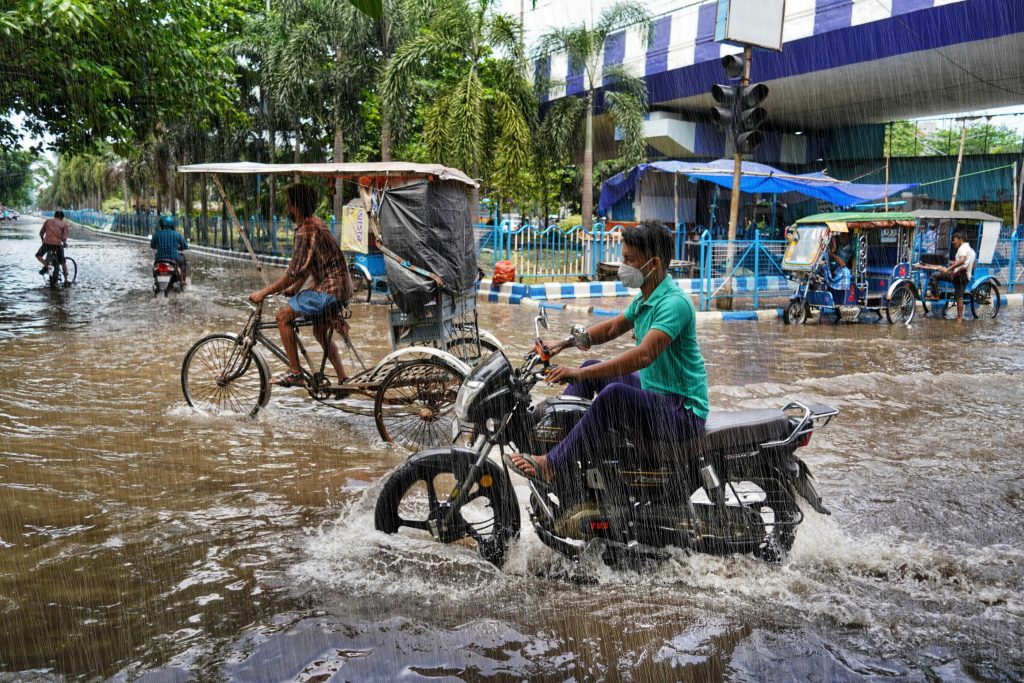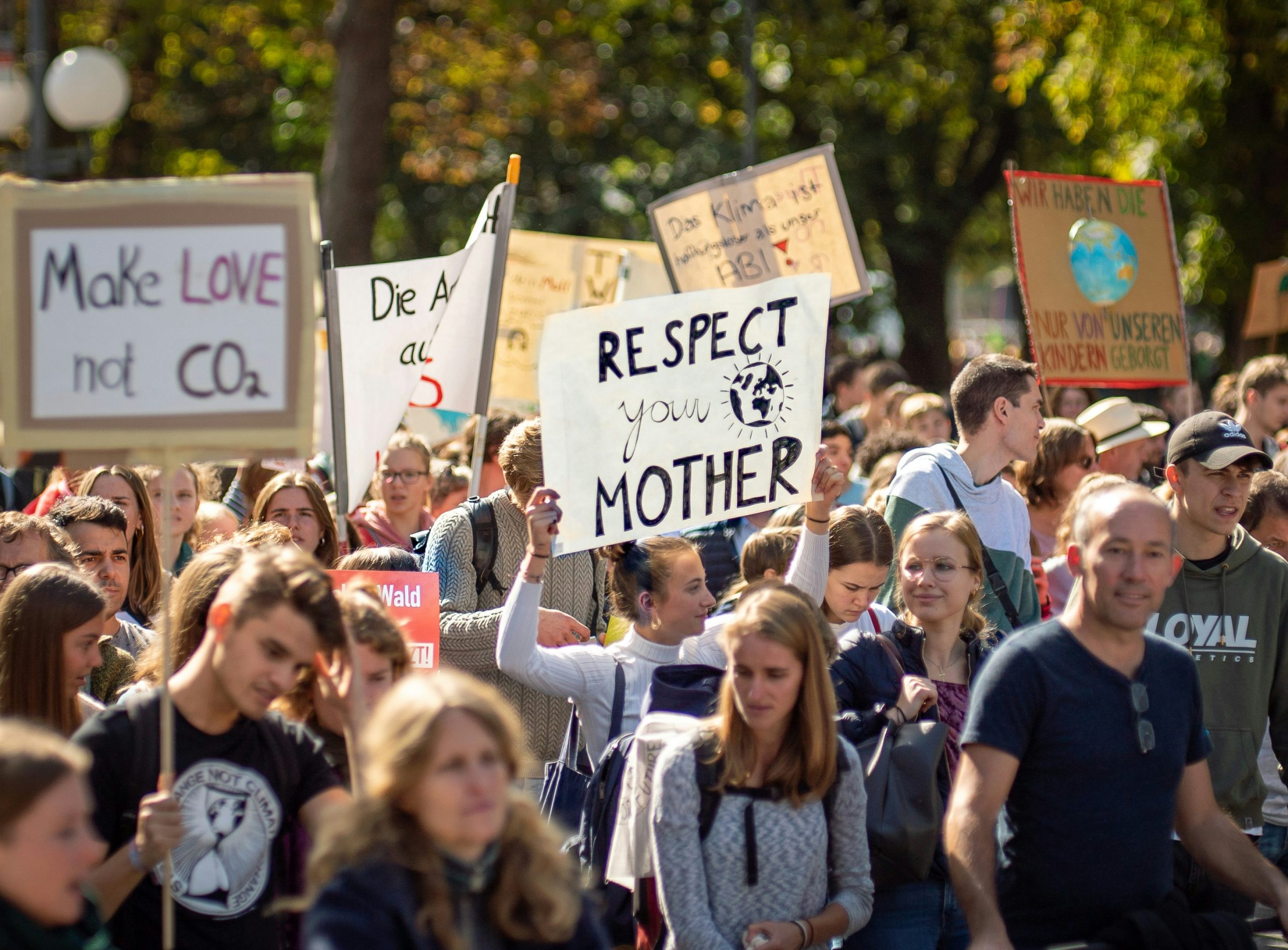Ethical perspectives on health systems and climate change
A summary of the Thematic Working Group webinar by Kate Hawkins of Pamoja Communications, ReBUILD for Resilience and Urban SHADE.
Our session moderators, Sassy Molyneux and Karen Ceballos, opened the webinar by explaining that the time is right for this conversation as there are new ethical issues and concerns around equity and responsibility and tensions between different policy and practice directions to counter the harm of climate change.
Addressing climate change is part of our healing mission
“We need to know how to design and implement our health systems in these rapidly changing times,” said Renzo Guinto as he presented some of the emerging concepts and frameworks in health systems research which intersect with issues of climate change and planetary health.
He argued that there is a need for a holistic approach and a radical extension of our thinking about health. This requires interdisciplinary engagement with unusual actors such as climatologists and environmental scientists. There are nine planetary boundaries and six have already been violated, one of which is the boundary of climate change. Ultimately climate change will affect every element of human health. Those countries that have transgressed their planetary boundary are the wealthier ones and the impact of this is felt in countries with fewer resources, he informed us.
Renzo explained that the health sector is responsible for emissions and have an environmental footprint. Mitigation is the reduction of greenhouse gasses and adaptation reduces the risks and the impacts that climate change is bringing about. Mitigation and adaptation must be applied to the health system. Climate smart healthcare is about bringing these two functions together within the sector and creating health systems that can function when disaster strikes.
There is some guidance on how hospitals and health facilities can be made greener which can take us closer to a ‘green Universal Health Coverage’. On the other hand there is a need to embed resilience to climate change within the health system so it recovers better or transforms as a result of climate stressors. Primary healthcare is at the heart of our work and consideration of the planet should be at the centre of this action. Unfortunately, when delivering the COVID-19 response we did so in a completely climate agnostic way, but it should be built into our emergency responses.
An ethical lens on sustainable health systems
Bridget Pratt explained that ethicists argue that the health sector has a duty to minimise their environmental impacts and adapt to climate change, grounded in solidarity and non- maleficence, and various forms of justice: climate justice, environmental justice, ecological justice. One school of thought is that protecting the environment protects humans. There is also an argument for ecological justice, taking an eco-centric perspective assigning value to humans and non-humans alike. Irrespective of its grounding, upholding healthcare’s duty to minimise its environmental impacts requires changes to its built environment, procurement of goods and services, and delivery of care.
Quandaries arise because there are trade-offs in the transition to less environmentally harmful climate resilient health systems:
- Changes are needed in the delivery of care to cut climate impact. But green healthcare often costs more, especially in the short term. This generates a tension between increased costs and mitigation. If covered by the government there are opportunity costs, if by patients it will reduce access and equity because of higher charges.
- Building or retrofitting healthcare facilities to make them greener can also have trade-offs. Space allocation tensions can arise in terms of space for clinical functions versus green functions. Mitigation and adaptation can also come into tension. Buildings are ideally designed to reduce extreme heat, but innovations like air conditioning and cooling centres can have a negative environmental impact and incur high upfront costs.
- In terms of procurement, money could be used to buy products to lower environmental impact. However, some items such as solar panels can be contributing to modern slavery, depending on where they are purchased.
Bridget ended with a series of overarching questions for discussion. How far should the health care sector go in terms of climate adaptation and mitigation? Should we spend scarce health resources on this and, if so, how much? Should we offer less care for environmental reasons? And critically, should the answers to these questions differ for high-, middle- and low-income settings?

Challenges ahead! Breaking new ground
Katherine Littler explained that we are heading into uncharted territory with our work on ethics, climate change and health systems. Climate change is critically important component of the work at WHO, it is embedded in the portfolios of different health areas. But there is a need for more ethics analysis in our action, which her team is seeking to fulfil.
Katherine explained that while the health impacts of climate change are increasingly well identified they are not recognised by all. In addition analyses of the ethics of responses are underdeveloped. We don’t think about this enough globally, regionally and nationally, including the trade-offs involved and their benefits and harms. This runs the danger of ethical questions not being taken into account in the response and as a result we could perpetuate and exacerbate pre-existing inequities and power dynamics.
She argued that there is a need to increase health literacy in the climate change space, for example, health does in not prominent in climate change talks as a precursor to some of these ethics debates. We need to Identify the on-the-ground challenges and to create practical solutions and guidance for people making the hard choices. To increase ethical policy making and understanding of community needs and issues on WHO is creating a range of briefs, mappings and guidance documents.
Some outstanding questions remained for Katherine – How should we respond to the need for reparations in terms of those harmed? Should those faced with existential threats be prioritised with the benefits of the green transition?
Balancing patient-centred care and sustainability in Singapore
Voo Teck Chuan spoke on Singapore’s efforts to integrate the ethics of environmentally friendly care through SingHealth. One issue is the prescription of inhalers which do not contain greenhouse gasses and their replacement with powder versions. While these would decrease the environmental impact of the health sector they may not be suitable for all patients. The powder inhalers require the patient to have a certain level of lung capacity, the ability to take a fast, deep breath, which not all patients can do. So ethically we must balance patient needs and environmental benefits. In addition these inhalers are more expensive, which has trade-offs. There is a need to explain to patients how the new inhalers are better for the environment and future generations, but to do so in such a manner that they do not feel judged if they choose the ‘wrong’ version which would have the knock on effect of undermining trust.
Justice for whom?
Lana Whittaker and Abu Conteh brought the perspective of vulnerable settings, such as in informal settlements. People in these settings are some of the most impacted by climate change, but contribute the least to emissions. They live on land which others don’t find valuable, leaving them at risk of flooding, extreme heat and landslides. The health system is inadequate in urban informal settlements and there is limited responsibility or political will to consider these communities. Global action needs to take the vulnerabilities of people living in informal settlements as a matter of priority. Decentralisation and localisation are needed, and there is a need for resources to flow to the most marginalised so that communities can contribute to the response.
Responses from whom?
Upasona Ghosh took us to India for a case study on green hospital care where public and private providers are working together to build green health systems resilience. The use of private providers is very common, particularly in the urban areas. Climate change is stimulating migration from rural to urban areas which is creating more demand on the health system.
Energy efficient fans, water conservation, better waste management and solar power are all interventions being implemented. But the public health sector is financed through the national government budget for climate change and public health. This has created ethical dilemmas. They have to deliver healthcare, which is not yet secured for all in India, while responding to the effects of climate change. Mitigation strategies are considered a burden in the face of this, as they are top down and mandated without education or consultation about why and how this change should happen. This causes practical problems, for example if a solar panel breaks there is no initiative to repair it. Private hospitals are increasing prices to cover the mitigation. This impacts on the urban poor. The standards for greener health system accreditation are very Global North oriented and there is limited evidence of what is feasible and desirable in the Global South.
Rudolph Abugnama-Abanga spoke of the challenges of mainstreaming climate change mitigation into primary health care in Ghana. In his research health managers explain that they are paid by the national health insurance and this comes late and does not cover everything that would be needed. In the face of their fiscal and other resource challenges climate mitigation is not a high priority. They complained of top-down policies and that the links between health and climate change are poorly explained to them. They argued that adaptation should be local and culturally acceptable at the community level.
This is a question of how we survive as humanity
In a moving and inspiring closing statement, Vivian Camacho from Bolivia reminded us that, “This is question of how we survive as humanity.” Speaking from the perspective of indigenous medicine she argued that there is need for inter-cultural dialogue between ancestral traditional and western science. Indigenous thinkers consider the spirit of water, fire and earth and maintaining an equilibrium. They map the cycles of the sun, moon and stars and of farming through planting, growing and harvesting. We are all part of these cycles. Health is an integrated way of being in the world and food, water and air are the first remedy of the earth. She argued that we need to focus on life and rights, not the market and medicalisation. To do this we must be anti-capitalist and decolonial.
“Health is not just a sector that struggles alone – we need to take care of life integrally.”

